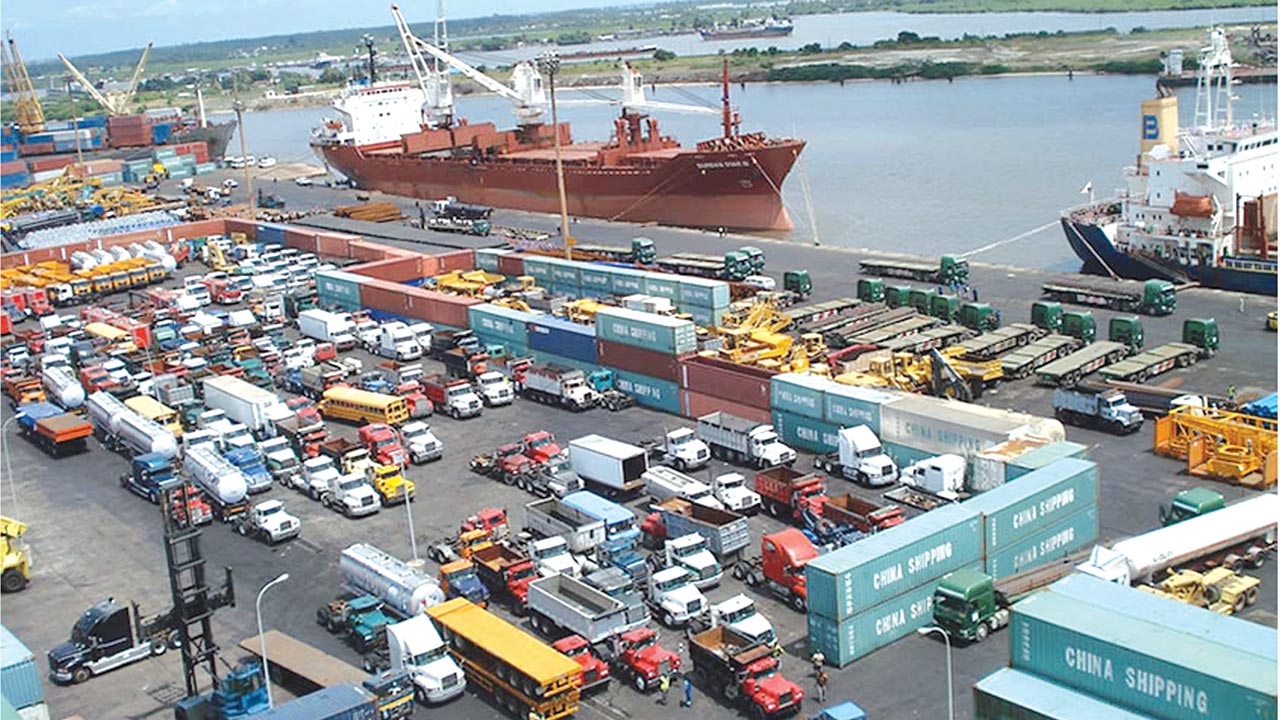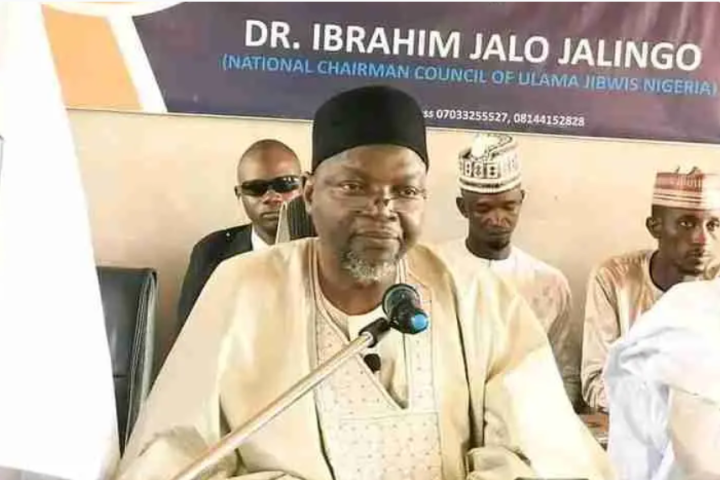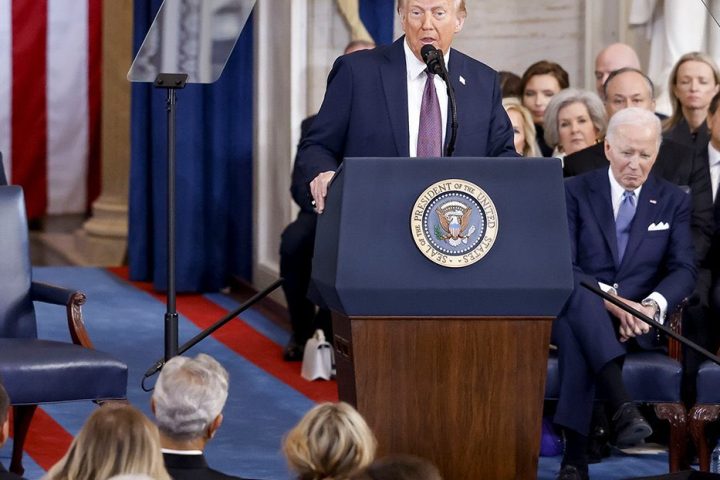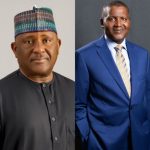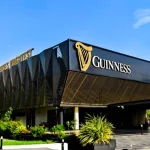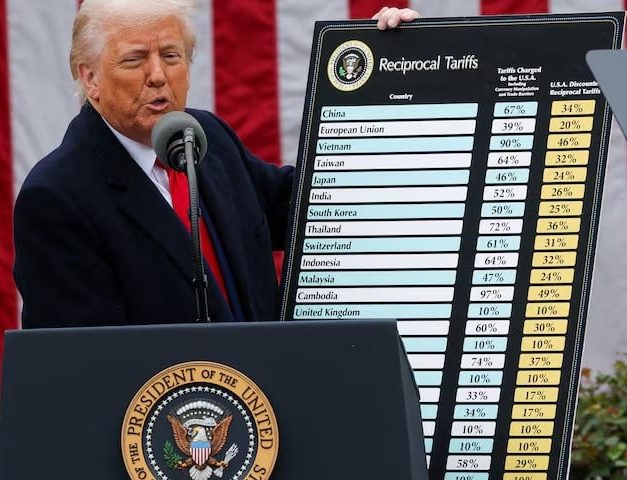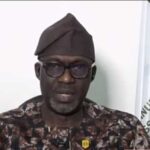Nigeria’s economy is paying a heavy price for its inefficient port operations. With the Lagos port handling over 80% of imports, congestion and bureaucratic inefficiencies are stifling trade and economic expansion. As the country loses an estimated ₦7.6 trillion annually due to port congestion, it’s clear that decentralising port operations is no longer a luxury, but a necessity. Can Nigeria break free from its port monopoly and unlock its full economic potential?
Why Nigeria Must End Its Port Monopoly
In 2017, Hadiza Bala Usman initiated reforms to break monopolies by allowing importers to choose terminals freely. This move was part of broader efforts to liberalise free trade zones and enhance competition among port operators. However, despite these steps forward, the underlying issues remain unresolved.
Join our WhatsApp ChannelThe dangers of over-reliance on the congested Lagos port, bureaucratic inefficiencies, and skyrocketing business costs are severe. Notwithstanding Nigeria’s vast coastline, other ports remain underutilised, stifling trade and economic expansion. Decentralising port operations is not just necessary but urgent. A diversified port system would boost business efficiency, reduce regional disparities, and unlock new economic opportunities. However, political interests and infrastructure gaps stand in the way.
Persistent Challenges: Congestion and Inefficiency
The Nigerian economy suffers significantly from inefficient port operations. According to recent analyses, poor infrastructure in Nigerian ports results in substantial economic losses. Reports have shown that the cost of doing business at Nigerian ports is among the highest in West Africa. Lagos ports, which handle over 80% of Nigeria’s imports, continue to face severe congestion due to inadequate infrastructure and bureaucratic inefficiencies. For instance, the port stay duration for wet bulk cargo in Lagos increased to 4.3 days as of January 13, 2025, up from 3.8 days the previous week, reflecting ongoing delays and inefficiencies.
READ ALSO: Nigeria’s Port Monopoly: A Ticking Time Bomb For The Economy
Despite the opening of the Lekki Deep Sea Port in Lagos, which aims to alleviate pressure on existing facilities, challenges persist as broader systemic reforms and investments remain insufficient.
Congestions not only disrupt supply chains but also impose significant costs on businesses. They erode profit margins for businesses reliant on imports and stifle economic growth.
A 2020 World Bank report highlighted that Nigeria’s ports were ranked among the least efficient globally due to outdated facilities and logistical bottlenecks.
Nigeria loses an estimated ₦7.6 trillion annually due to congestion at Apapa and Tin Can Island ports, according to the Lagos Chamber of Commerce and Industry. Additionally, trucks queue for days waiting for access, costing the economy $55 million daily in lost activities.
The Lagos Chamber of Commerce and Industry (LCCI) has estimated that inefficiencies at Nigerian ports cost the business community over N2.5 trillion annually. with delays and administrative bottlenecks in the business community, this usually translates into a significant portion of Nigeria’s GDP being lost due to inefficiencies. This translates into substantial implications for tax revenue, job creation, and overall economic growth.
In 2025, challenges persist despite efforts like implementing a National Single Window (NSW) aimed at reducing costs by up to 25%. The proposed increase in port charges by 15% has been met with resistance, manufacturers fear it will exacerbate production costs and inflationary pressures.
Segun Ajayi-Kadir, Director General of the Manufacturers Association of Nigeria (MAN), expressed grave concerns over the tariff hike: “Imposing any additional financial burden on manufacturers through increased port tariffs would exacerbate the challenges being faced by operators in the real sector… This will not only reduce revenue for the Nigerian government but will encourage smuggling and other untoward trade practices that weaken our economy.”
Joshua Asanga, a maritime expert, noted that while inflation has eroded NPA’s current tariff value over three decades, there is scepticism about whether additional revenue will translate into better services or just more costs for businesses.
Continued Economic Impacts
It does not just end with manufacturers, the economic impact of inefficient port operations in Nigeria is profound. There are also trade facilitation challenges like food insecurity: Inefficiencies at seaports exacerbate food insecurity by inflating food prices due to high tariffs on agricultural imports; a reason many Nigerians cannot feed thrice daily. It also leads to Export Competitiveness, because delays caused by multiple inspections and excessive documentation discourage participation in export businesses, reducing foreign exchange earnings from non-oil sectors.
Current Context: Blue Economy Initiative
The recent focus on the “Blue Economy” raises questions about its alignment with existing federal structures and potential impact on state rights. While this initiative aims at leveraging maritime resources for economic growth, it must be carefully integrated into existing frameworks without exacerbating regional disparities or legal ambiguities.
A call to action for policymakers to move beyond Lagos and unlock Nigeria’s full economic potential
Decentralizing Nigeria’s ports is crucial for addressing congestion and inefficiency. Activating ports in Calabar, Warri, and other areas offers several benefits. Job creation is a significant advantage, as developing regional ports can provide employment opportunities beyond urban centres like Lagos. This helps distribute wealth more evenly and reduces migration pressures.
Reduced congestion is another benefit, as distributing cargo across multiple ports alleviates pressure on major hubs like Apapa. Faster clearance times reduce costs associated with delays and enhance operational efficiency.
READ ALSO: Calls For Seaport Decentralisation Increase As Citizens Highlight Benefits To Economy
Decentralisation also fosters regional economic development, stimulating local economies through increased trade activities. Studies support this approach by highlighting how decentralised management can minimise bureaucracy (Olukoju, 2006; Badejo, 2012). Aligning with global best practices in efficient distribution networks underscores the importance of this strategy for Nigeria’s economic health.
Why Change is Necessary Now
Ending Nigeria’s port monopoly is essential for sustainable economic growth. It demands a comprehensive approach that includes policy reforms, infrastructure development beyond Lagos, and ensuring that new initiatives like the Blue Economy align with constitutional principles while fostering equitable development nationwide. This analysis connects past reforms with current challenges while emphasising the urgency of decentralising port operations for broader economic benefits.
Dr Mbamalu, a Jefferson Fellow and member of the Nigerian Guild of Editors (NGE) is the publisher of www.primebusiness.africa
Follow him on X: @marcelmbamalu
SMS/Whatsapp: +2348094000017
Dr. Marcel Mbamalu is a communication scholar, journalist and entrepreneur. He holds a Ph.D in Mass Communication from the University of Nigeria, Nsukka and is the Chief Executive Officer Newstide Publications, the publishers of Prime Business Africa.
A seasoned journalist, he horned his journalism skills at The Guardian Newspaper, rising to the position of News Editor at the flagship of the Nigerian press. He has garnered multidisciplinary experience in marketing communication, public relations and media research, helping clients to deliver bespoke campaigns within Nigeria and across Africa.
He has built an expansive network in the media and has served as a media trainer for World Health Organisation (WHO) at various times in Northeast Nigeria. He has attended numerous media trainings, including the Bloomberg Financial Journalism Training and Reuters/AfDB training on Effective Coverage of Infrastructural Development of Africa.
A versatile media expert, he won the Jefferson Fellowship in 2023 as the sole Africa representative on the program. Dr Mbamalu was part of a global media team that covered the 2020 United State’s Presidential election. As Africa's sole representative in the 2023 Jefferson Fellowships, Dr Mbamalu was selected to tour the United States and Asia (Japan and Hong Kong) as part of a 12-man global team of journalists on a travel grant to report on inclusion, income gaps and migration issues between the US and Asia.

